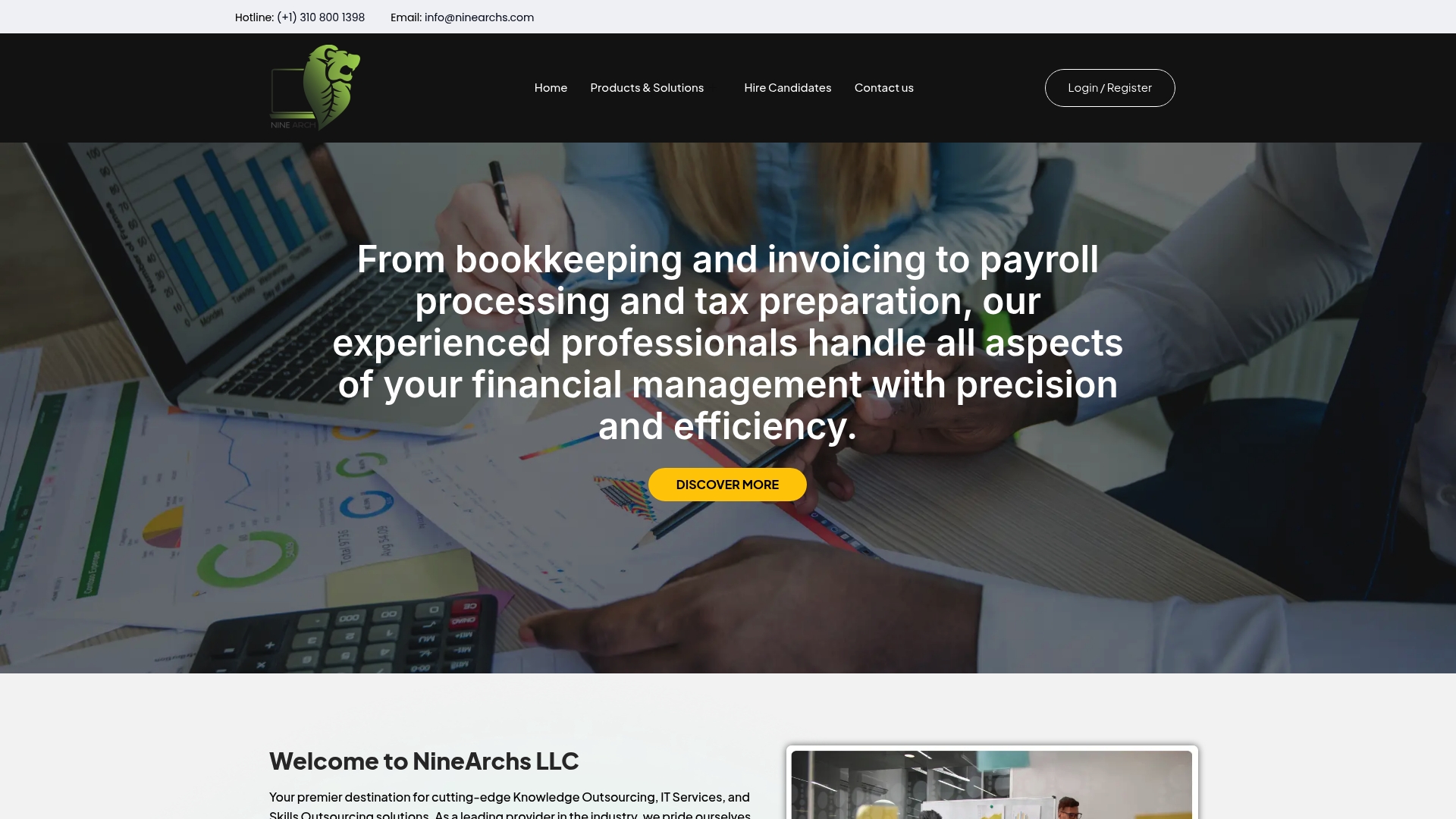Outsourcing is more than just a corporate buzzword. Nearly 300,000 jobs are outsourced from the United States each year, changing the way companies work around the world. But a lot of people think outsourcing is only about cutting costs or shipping jobs overseas. The real surprise is that the smartest companies use outsourcing to unlock new expertise, boost innovation, and fuel growth in ways most people never expect.
What Does It Mean to Outsource?
Outsourcing is a strategic business practice where companies contract external service providers to handle specific tasks or functions that were traditionally performed in-house. According to Investopedia, outsourcing enables businesses to concentrate on their core competencies while delegating specialized or time-consuming activities to external experts.
Core Principles of Outsourcing
At its fundamental level, outsourcing represents a deliberate business decision to transfer certain operational responsibilities to third-party professionals. This approach allows organizations to optimize their resources, reduce operational costs, and access specialized skills that might not be available internally. Companies across various industries leverage outsourcing as a powerful strategy to enhance efficiency and maintain competitive advantage.
Strategic Implementation of Outsourcing
Businesses typically outsource functions that are not central to their primary value proposition. Common areas for outsourcing include:
- Information technology services
- Customer support operations
- Human resources administrative tasks
- Accounting and financial processing
- Marketing and digital content creation
By strategically selecting which functions to outsource, companies can redirect their internal talent and resources toward more strategic initiatives that directly contribute to growth and innovation. Learn more about our business process outsourcing solutions to understand how targeted outsourcing can transform your operational efficiency.
The decision to outsource is not merely about cost reduction but about creating a more agile, focused, and competitive business model. Successful outsourcing requires careful vendor selection, clear communication of expectations, and ongoing performance monitoring to ensure alignment with the company’s strategic objectives.
The Benefits of Outsourcing for Business Owners
Outsourcing offers significant strategic advantages for business owners seeking to optimize their operational performance and drive sustainable growth. According to the U.S. Government Accountability Office, outsourcing can dramatically improve organizational efficiency, service quality, and technological capabilities.
Financial and Operational Advantages
Business owners can unlock substantial financial benefits through strategic outsourcing. By delegating non-core functions to specialized service providers, companies can significantly reduce operational expenses.
 This approach eliminates the need for extensive in-house infrastructure, reduces recruitment and training costs, and allows businesses to convert fixed labor expenses into variable, scalable costs that align more closely with actual business requirements.
This approach eliminates the need for extensive in-house infrastructure, reduces recruitment and training costs, and allows businesses to convert fixed labor expenses into variable, scalable costs that align more closely with actual business requirements.
Accessing Specialized Expertise and Technology
Outsourcing enables businesses to tap into a global talent pool of highly specialized professionals without the complexities of direct hiring. Companies gain immediate access to cutting-edge skills and advanced technological capabilities that might be prohibitively expensive or challenging to develop internally. Explore our comprehensive IT support solutions to understand how targeted technological expertise can transform your business operations.
Key strategic benefits of outsourcing include:
- Rapid scalability of business capabilities
- Access to global talent and advanced technological resources
- Reduced operational overhead and infrastructure costs
- Enhanced focus on core business strategy and innovation
- Improved operational flexibility and agility
Beyond cost savings, outsourcing represents a sophisticated approach to business management.
To help clarify the main ways outsourcing benefits business owners, the table below summarizes several key advantages and their impact on company operations.
| Benefit | Description |
|---|---|
| Cost Reduction | Decreases operational expenses and converts fixed costs into scalable, variable costs. |
| Specialized Expertise | Grants quick access to highly skilled professionals and advanced technology. |
| Scalability and Flexibility | Enables businesses to scale operations rapidly to meet changing needs. |
| Focus on Core Business | Frees up internal resources to focus on strategic growth and innovation. |
| Reduced Infrastructure Burden | Eliminates the need for extensive in-house systems and resources. |
| Enhanced Service Quality | Offers improved service levels by leveraging expert third-party providers. |
| Accelerated Innovation | Stimulates innovation by allowing companies to pursue new ideas and approaches. |
How Outsourcing Improves Operational Efficiency
Research from NCBI indicates that outsourcing enables organizations to systematically enhance their operational efficiency by redirecting internal resources toward strategic objectives. This approach transforms traditional business processes, creating more agile and responsive organizational structures.
Streamlining Workflow and Resource Allocation
Operational efficiency through outsourcing involves precisely mapping which business functions can be most effectively managed by external specialists. By identifying non-core activities that consume significant time and resources, companies can create leaner, more focused internal teams. This strategic redistribution allows businesses to concentrate on critical value-generating activities that directly impact growth and competitive positioning.
Technology and Performance Optimization
Modern outsourcing goes beyond simple task delegation. It represents a sophisticated approach to performance enhancement where specialized service providers bring advanced technological capabilities and refined expertise. Discover our software development solutions to understand how targeted technological interventions can dramatically improve operational workflows.
Key mechanisms through which outsourcing enhances operational efficiency include:
- Reducing administrative overhead and complex management processes
- Implementing standardized, proven operational protocols
- Accessing specialized skills without long-term recruitment commitments
- Enabling faster technological adaptation and integration
- Creating more flexible and scalable organizational structures
Successful operational efficiency through outsourcing requires a strategic approach that aligns external partnerships with core business objectives. By carefully selecting service providers who understand their specific industry dynamics, businesses can transform potential operational challenges into opportunities for continuous improvement and sustainable growth.

Key Considerations When Choosing to Outsource
According to Harvard Business Review, strategic outsourcing requires careful evaluation of multiple organizational factors to ensure successful implementation. Business owners must approach outsourcing as a nuanced decision that extends beyond simple cost considerations.
Assessing Organizational Readiness and Strategic Alignment
Before initiating an outsourcing strategy, businesses must conduct a comprehensive internal assessment. This evaluation involves identifying which functions are most suitable for external management and understanding how outsourcing aligns with long-term organizational goals. Critical factors include evaluating the potential impact on company culture, maintaining quality control, and ensuring seamless communication between internal teams and external service providers.
Vendor Selection and Risk Management
Selecting the right outsourcing partner is paramount to achieving desired outcomes. Companies must thoroughly investigate potential vendors’ track records, technological capabilities, security protocols, and industry reputation. Learn more about our comprehensive web solutions to understand the critical elements of successful vendor partnerships.
Key considerations during vendor selection include:
- Proven expertise in the specific domain
- Strong data security and confidentiality protocols
- Demonstrated track record of successful client partnerships
- Scalability and flexibility of service offerings
- Cultural and communication compatibility
Successful outsourcing transcends transactional relationships. It requires developing strategic partnerships that contribute meaningful value to the organization’s overall performance. Business owners must remain actively engaged, establishing clear performance metrics, maintaining open communication channels, and periodically reassessing the effectiveness of their outsourcing strategy to ensure continued alignment with evolving business objectives.
The following table outlines several important considerations when selecting and managing outsourcing partnerships to help ensure long-term success.
| Consideration | Explanation |
|---|---|
| Vendor Expertise | Assess the provider’s proven skills and experience in the relevant domain. |
| Security Protocols | Ensure strong data protection and confidentiality standards are in place. |
| Track Record | Verify the vendor’s history of delivering successful partnerships for similar clients. |
| Scalability and Flexibility | Confirm that services can grow and adapt as your business needs evolve. |
| Communication Compatibility | Evaluate cultural alignment and clarity in communication with the vendor. |
| Performance Metrics | Establish clear criteria for measuring outsourcing success and holding partners accountable. |
| Ongoing Risk Management | Regularly reassess risk and ensure continuity with contingency planning. |
Real-World Examples of Successful Outsourcing
According to Forbes, strategic outsourcing has transformed how successful companies optimize their operational capabilities and drive innovation across multiple industries.
Technology and Customer Service Outsourcing
Technology giants like Google and Microsoft have long utilized outsourcing strategies to enhance their global service delivery. By partnering with specialized service providers, these companies effectively manage customer support, technical maintenance, and software development functions across different geographical regions. This approach allows them to maintain high-quality service standards while significantly reducing operational costs and expanding their global reach.
Manufacturing and Production Outsourcing
Manufacturing companies have pioneered sophisticated outsourcing models that enable remarkable operational efficiency. Apple, for instance, outsources nearly all manufacturing processes to specialized partners like Foxconn, allowing the company to focus exclusively on product design, innovation, and brand development. Explore our comprehensive software development solutions to understand how targeted outsourcing can transform business operations.
Key characteristics of successful outsourcing examples include:
- Clear definition of strategic objectives
- Rigorous vendor selection processes
- Robust communication and performance monitoring frameworks
- Flexibility to adapt and scale external partnerships
- Alignment with long-term organizational goals
Successful outsourcing requires a sophisticated understanding of organizational capabilities and strategic potential. Companies that view outsourcing as a collaborative partnership rather than a mere cost-cutting mechanism are more likely to achieve transformative operational improvements and sustainable competitive advantages.
Discover Real Growth by Outsourcing with Ninearchs
If your business struggles to keep up with complex back-office tasks or your team feels stretched thin by daily demands, you are not alone. This article highlighted how outsourcing helps business owners like you optimize resources, cut unnecessary costs, and gain access to top talent without the burden of hiring. Many organizations want to scale but find it challenging to maintain efficiency and focus on core goals. By turning to experts for virtual assistance and IT support, you can finally gain the freedom to innovate and grow.

Ready to streamline your operations and unleash your true potential? Take action today. With Ninearchs Outsourced Virtual Assistants, you can empower your business with professional support that saves time and boosts productivity. See how our back office and IT support solutions can give you the edge in a competitive market. Visit our website now and discover how you can start building a more efficient and agile business, right away.
Frequently Asked Questions
What is outsourcing in business?
Outsourcing is a strategic business practice where companies contract external service providers to manage specific tasks or functions that were traditionally handled in-house. This approach allows businesses to focus on their core competencies while utilizing specialized expertise for non-core activities.
What are the key benefits of outsourcing for business owners?
The key benefits include reduced operational costs, access to specialized skills and technologies, enhanced focus on core business strategies, improved scalability of operations, and increased operational flexibility.
How does outsourcing improve operational efficiency?
Outsourcing enhances operational efficiency by allowing businesses to streamline workflow, allocate resources effectively, and delegate non-core functions to specialized experts, which results in more focused internal teams and improved overall performance.
What should business owners consider when choosing to outsource?
Business owners should assess their organizational readiness, identify suitable functions for outsourcing, carefully select vendors based on expertise and reputation, and develop clear communication and performance monitoring strategies to ensure successful implementation.








[…] Understanding Why Business Owners Outsource for Growth | NineArchs […]
[…] Outsourcing IT services provides businesses with a powerful strategy to dramatically slash operational expenditures while accessing top tier technological expertise. Learn more about how outsourcing transforms business economics. […]
[…] Understanding Why Business Owners Outsource for Growth | NineArchs […]
[…] versus potentially outsourceable? Where do skill gaps exist that external talent could fill? Understand why business owners outsource for strategic growth by first understanding your own operational […]
[…] delegate routine administrative tasks to external professionals or specialized organizations. Understanding why business owners outsource for growth reveals these services extend far beyond simple task delegation. Administrative support services […]
[…] Understanding Why Business Owners Outsource reveals that successful implementation requires careful vendor selection. Look for providers with proven track records in your industry, robust training programs, and transparent performance metrics. […]
[…] enables businesses to focus on their primary competencies while leveraging external expertise. Read more about why business owners outsource for growth to understand its strategic importance. The practice typically covers non-core tasks such […]
[…] specialized expertise, allowing internal teams to concentrate on high-value strategic initiatives. Understanding why business owners outsource reveals that this approach isn’t just about cost reduction, but about strategic reimagining of […]
[…] concentrate on their primary strategic objectives while leveraging specialized external expertise. Understanding why business owners outsource reveals a nuanced landscape of operational […]